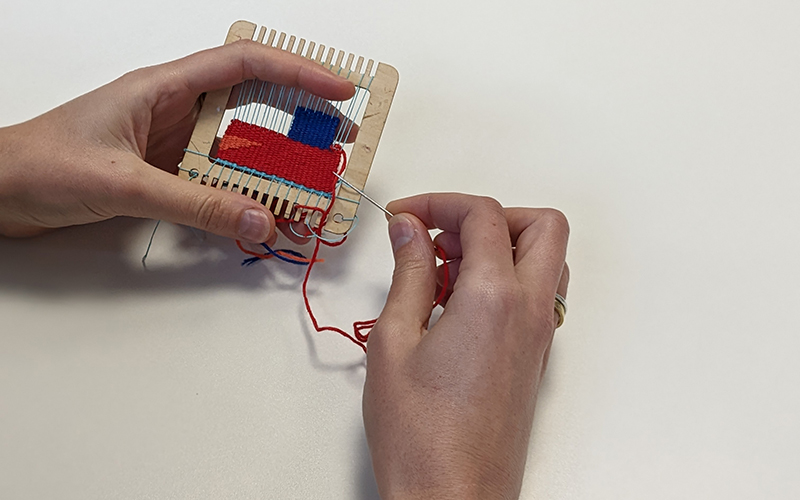Crafting knowledge of sustainable urban economic development
The research brings the DPU’s work on peri-urban expansion in the global south into conversation with indigenous economics in the global north, shedding new light on urban economic development.

12 December 2022
This new collaboration will provide insight, methods, and support for grant applications to develop this into a substantial research agenda.
The aim of the project is to shed new light on alternative pathways for sustainable urban economic development through arts-based engagement with evolving land use decisions in collective property regimes under pressure of urbanisation.
The main objectives are: (i) develop a methodology to bridge understanding around changing values and uses of indigenous peoples’ lands under pressure of urbanisation through traditional crafts; (ii) support grant applications to apply this methodology in international comparative research; and (iii) engage academic and non-academic audiences in debate on these critical issues through the production of journal articles and blogs.
- Project description
Across the Global South urbanisation goes hand-in-hand with individualisation of property. This transformation is often understood to be central to the economic gains of urbanisation yet is also detrimental to community, cultural, spiritual and environmental values – suggesting a profound tension at the heart of the concept of sustainable urban economic development.
There are important opportunities to learn about alternative pathways with communities that are managing these tensions differently. Early insights from Alexandra Panman’s (AP) ongoing research on this topic, however, highlights profound limitations of relying only on research methods grounded in epistemological assumptions that differ from those held by members of the communities and which are inextricably tied with colonisation. The proposed research therefore aims to develop alternative arts-based methodologies to bridge across forms of knowledge and gain new understanding of changing land management, uses, and values with urbanisation.
Building on Leah Lovett (LL) and the Connected Environments team’s innovative approaches to digital co-creation and augmented reality (AR) (see Unravelling, 2021), the methodology will centre collaboration and knowledge exchange with indigenous artists in Canada and South Africa to develop markers for spatial stories. Combining web-based AR and time-based media with traditional techniques such as weaving, the intention is to enable multiple entry points to understanding relationships to land, including materially (e.g. through using locally sourced fabrics and dyes), narratively (through stories told in the process of making, and accessed via AR), and culturally. In bringing AP and LL’s research agendas together, the project generates timely new knowledge for both. It upends dominant models of collaboration with economics in the creative sector – which aim to quantify the value of the arts – and instead demonstrates how cultural creative methods can enhance knowledge of economic processes of change.
- Objectives
The project will serve to establish relationships with indigenous artists and develop methodologies to be trialled through a pilot project in British Columbia (Canada). The process will be documented and published in an academic journal (targeted at a leading arts and social practice journal such as Leonardo) and blog, and a small exhibition of the materials produced will be held. In addition to this, the results will feed into APs ongoing research in these locations, and a large grant application will be prepared to further apply the methodology in comparative research in Durban (South Africa) and other contexts.
- Team
Dr Alexandra Panman
Co-Principle InvestigatorLeah Lovett
Co-Principle InvestigatorProf Colin Marx
Co-Investigator
 Close
Close

